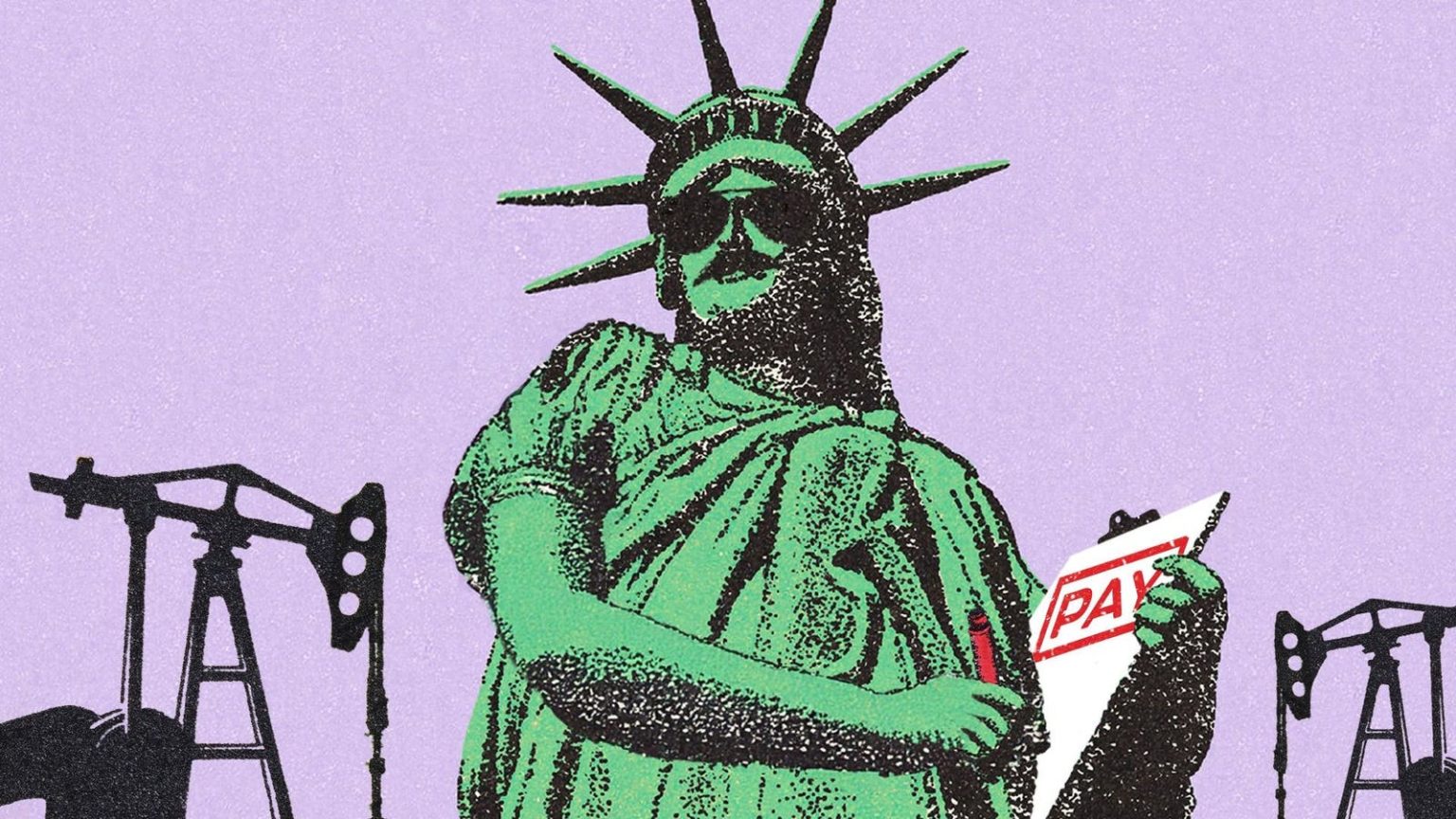Albany’s ambitious plan to combat the climate crisis by imposing a substantial financial burden on the fossil fuel industry faces significant constitutional hurdles, potentially jeopardizing its viability and raising concerns about fairness and legal overreach. The legislation, signed by Governor Kathy Hochul, seeks to create a $75 billion “superfund” for environmental remediation by levying assessments on companies with substantial historical fossil fuel sales. While proponents argue this addresses the industry’s role in climate change, critics contend that the law’s retroactive nature, extraterritorial reach, and questionable connection to actual damages in New York violate fundamental constitutional principles.
The first major obstacle is the law’s retroactive application. The assessment targets past fossil fuel sales, effectively penalizing companies for actions that predate the law’s enactment. While the Constitution prohibits ex post facto laws in criminal cases, the question remains whether this assessment constitutes a fine (criminal) or a tax (civil). This distinction is crucial, as a punitive fine applied retroactively would likely be unconstitutional. Further complicating the matter is the Fourteenth Amendment’s due process clause, which protects individuals and entities from arbitrary deprivation of property. Retroactively altering the rules of the game, as this law does, raises serious concerns about fairness and predictability, essential elements of due process.
The law’s extraterritorial reach presents another significant constitutional challenge. The assessment targets global fossil fuel sales, not just sales within New York. This raises concerns about the Commerce Clause, which grants Congress the power to regulate interstate and foreign commerce. While states can enact laws affecting interstate commerce, they cannot do so in a way that unduly burdens or discriminates against it. New York’s attempt to regulate global petroleum production, and effectively export its tax burden to other states and countries, potentially conflicts with this principle. This contrasts sharply with cases where states regulate activity within their borders, even if it indirectly impacts interstate commerce.
The proportionality of the assessment also raises constitutional questions. New York’s justification for the hefty sum rests on the premise that the assessed companies are responsible for climate change-related damages within the state. However, establishing a direct causal link between global fossil fuel sales and specific damages in New York is complex. The law effectively bypasses the traditional process of proving causation in court, raising due process concerns. Furthermore, the assessment appears disproportionate to the companies’ activities within New York, potentially violating the principle of fair apportionment. States can tax companies operating within their borders, but the tax must be proportionate to the company’s in-state activity.
The law further blurs the lines between legislative and judicial functions by effectively legislating a verdict in a tort case. The assessment presumes that fossil fuel companies are liable for climate change damages, bypassing the judicial process of presenting evidence and establishing causation. This circumvention of due process rights raises serious concerns about the fairness and legality of the law. In a typical tort case, the plaintiff would have to prove that the defendant’s actions caused the alleged harm. New York’s law preemptively assigns blame and assesses damages without affording the companies the opportunity to defend themselves in court.
Another layer of complexity arises from the potential conflict with federal law. The Clean Air Act establishes a comprehensive federal framework for regulating air pollution, potentially preempting state laws that intrude on this area. If the New York law is deemed to conflict with or be preempted by federal law, it could be rendered invalid. The Supreme Court’s potential review of a similar case involving Honolulu’s lawsuit against oil companies could have significant implications for the New York law, particularly if the court rules in favor of preemption.
Finally, the practical implications of the law raise concerns about its economic rationality and potential impact on consumers. While proponents argue that the industry will bear the cost, it is more likely that these costs will be passed on to consumers through higher prices, impacting residents both within and outside of New York. This raises questions about the law’s true effectiveness in addressing climate change and its potential to create unintended economic consequences. Moreover, the adversarial approach taken by New York could discourage cooperation and investment in cleaner energy solutions, further hindering progress towards a sustainable future. The legal challenges facing the law, coupled with its potential economic and practical shortcomings, cast doubt on its long-term viability as a climate change solution.

